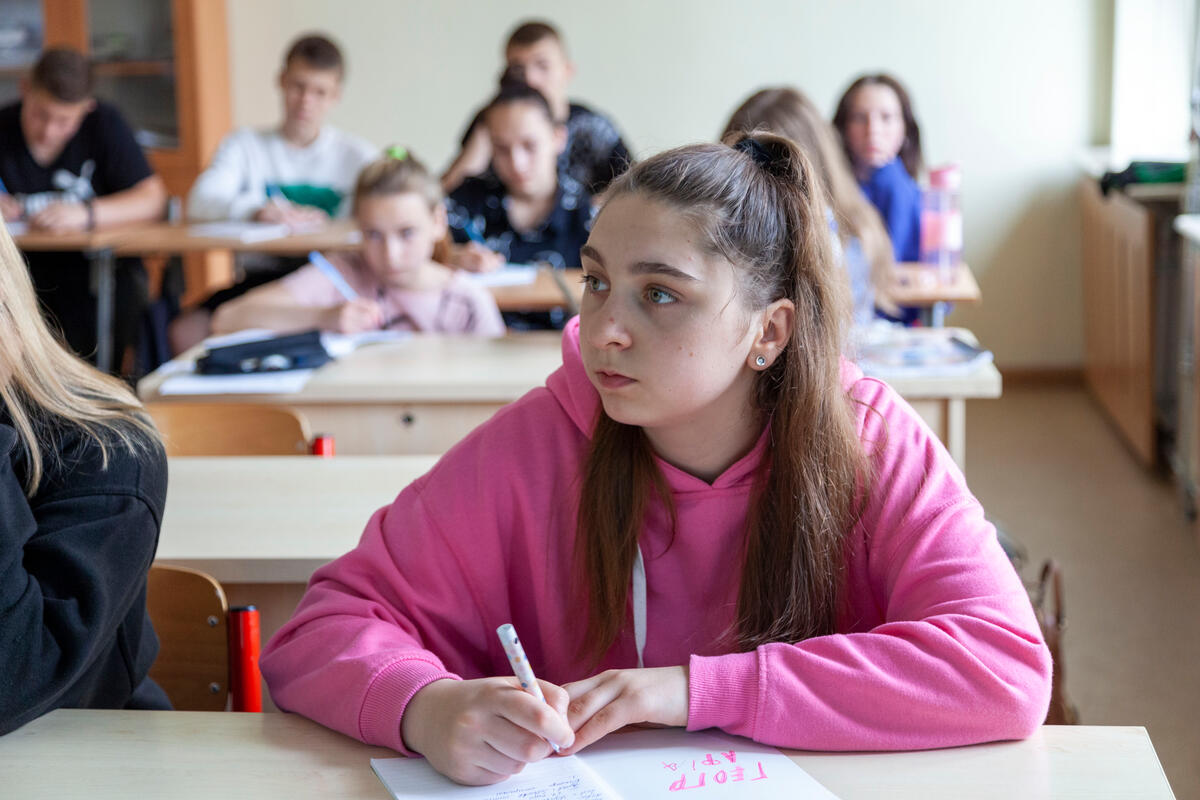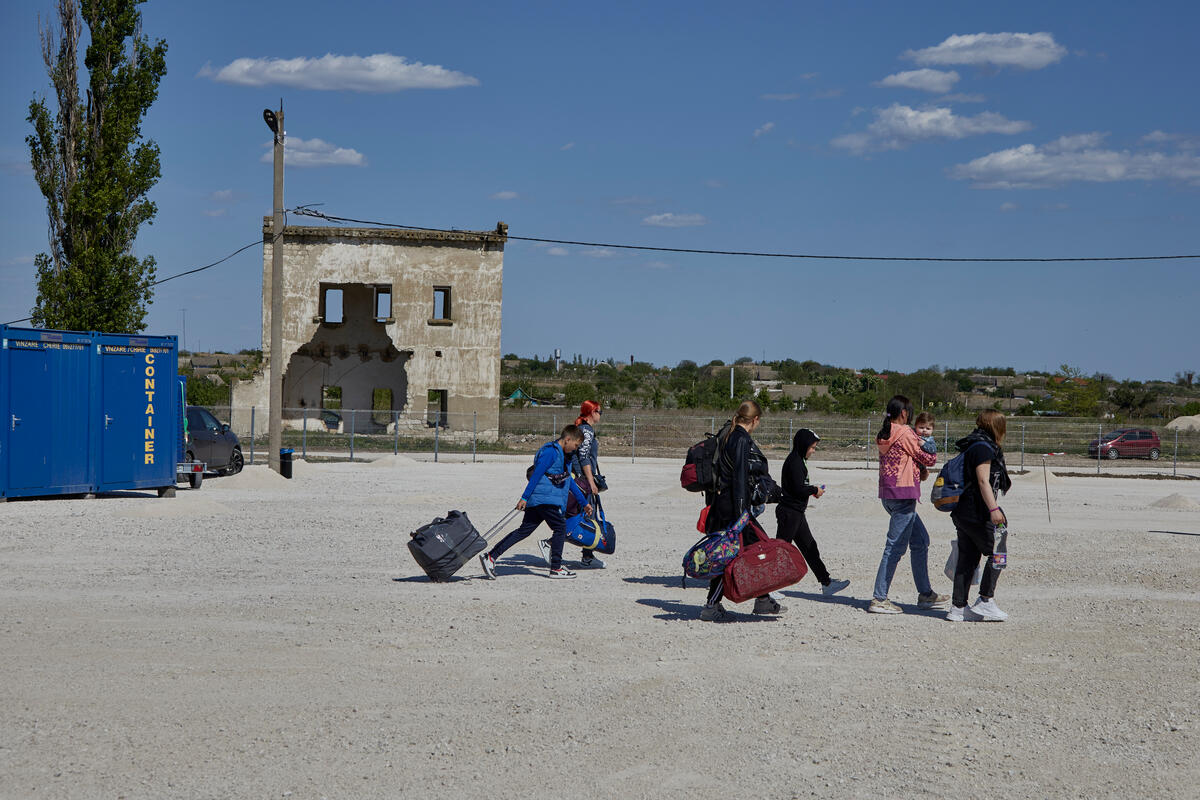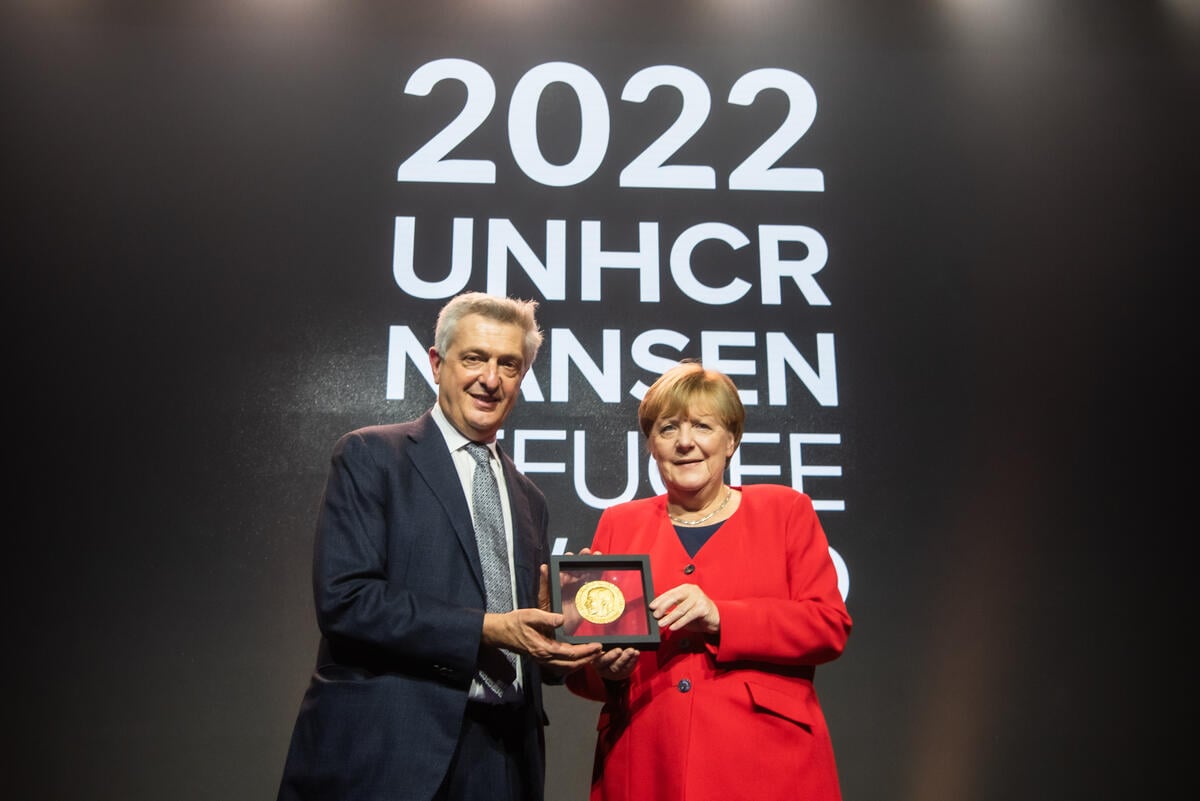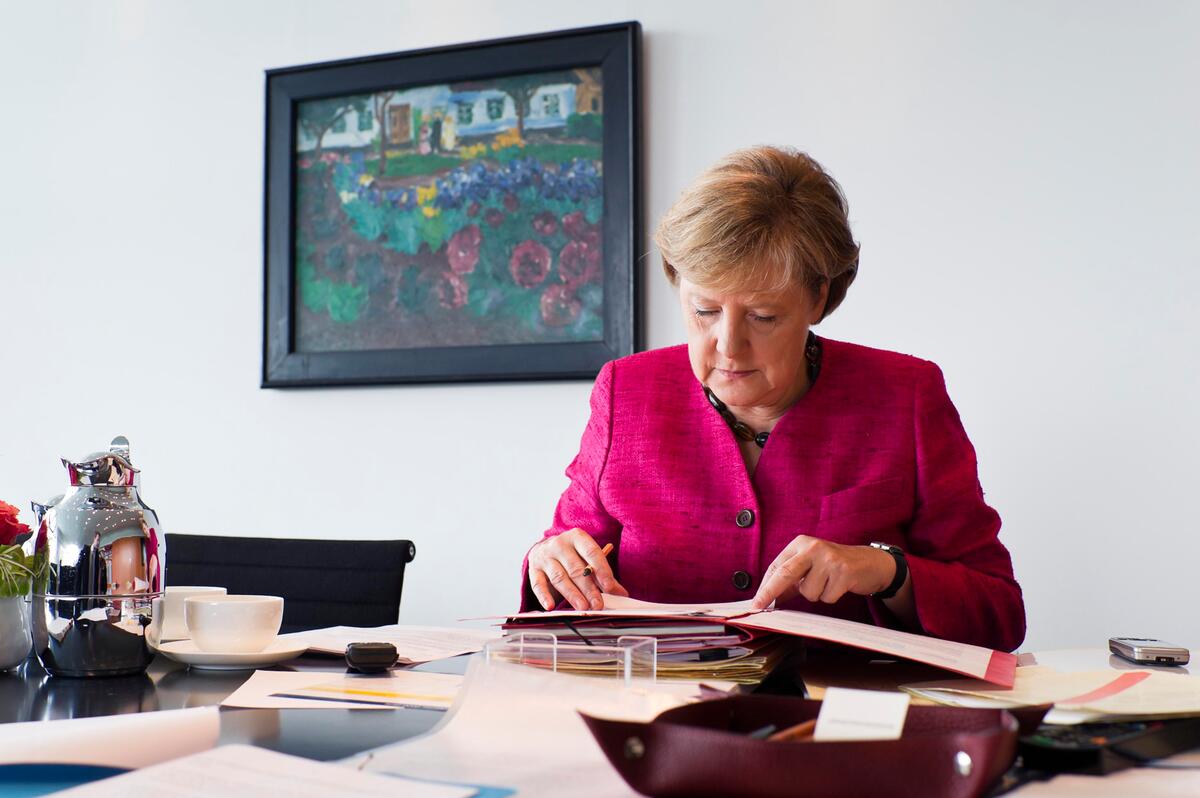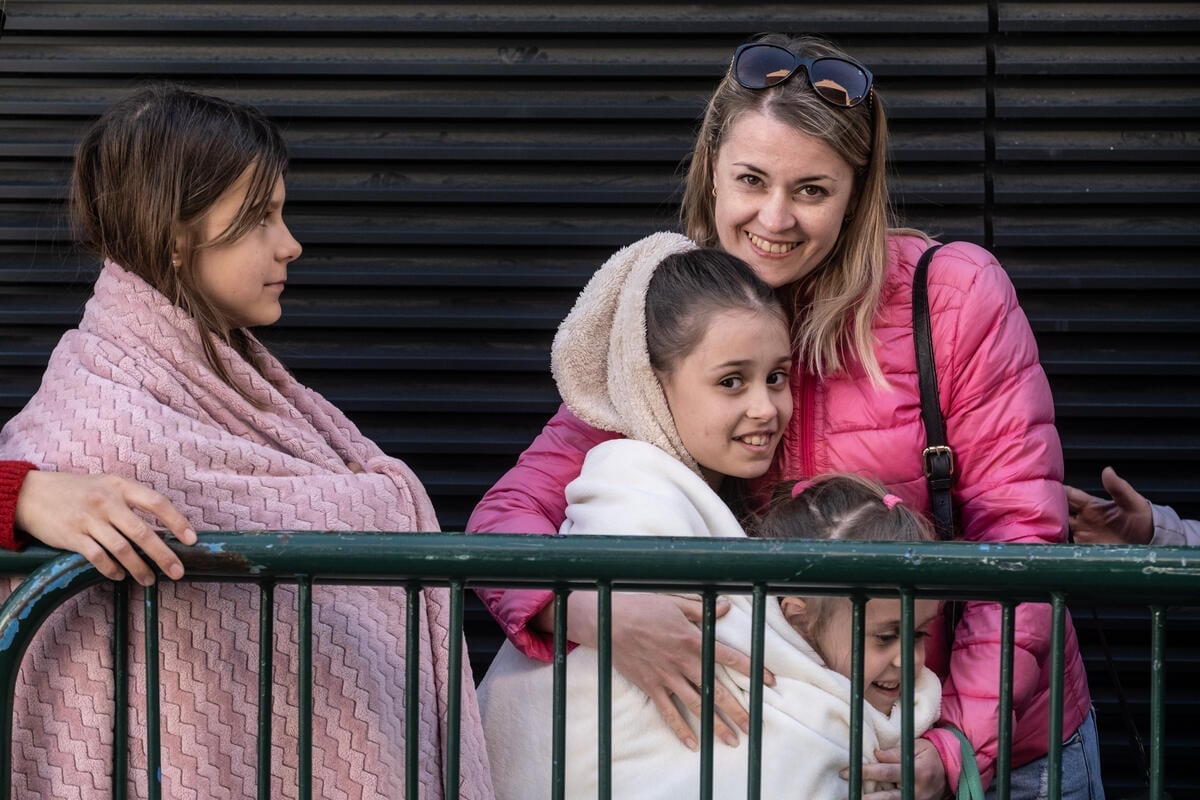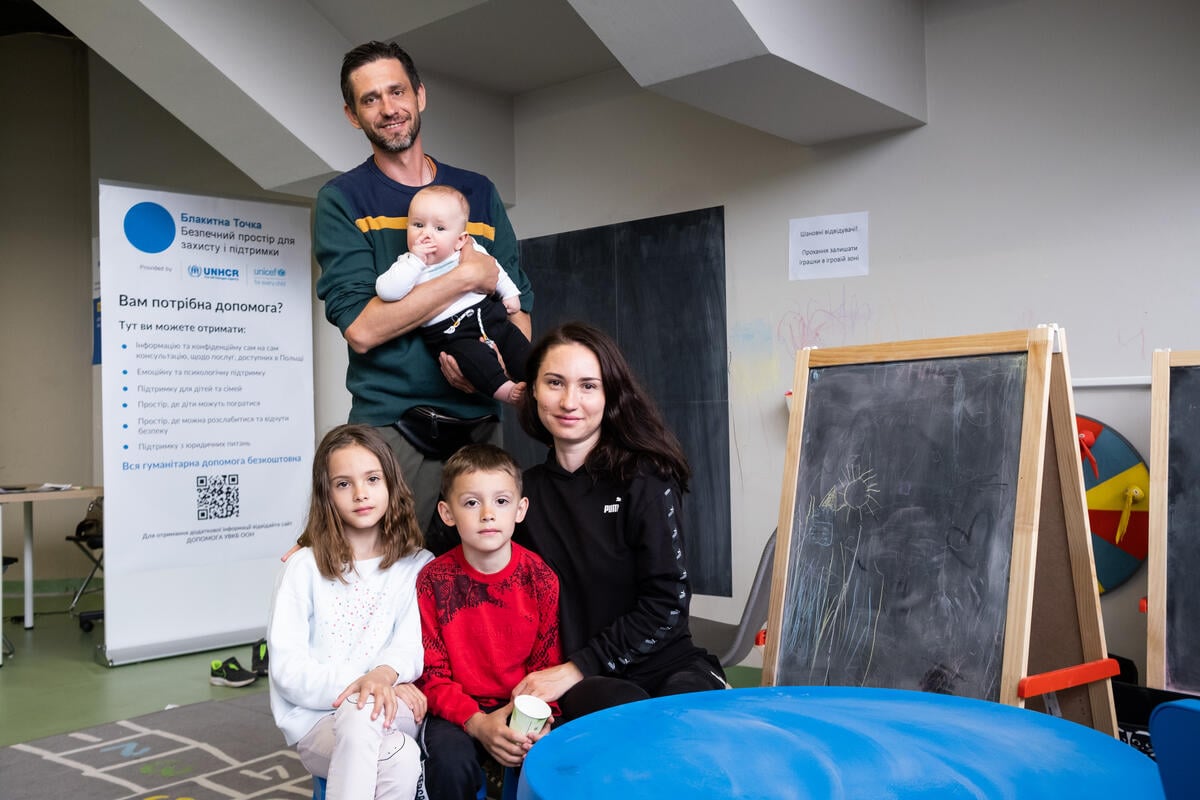12,000 people stranded at Syria-Jordan border in deteriorating conditions
12,000 people stranded at Syria-Jordan border in deteriorating conditions
UNHCR recognizes the tremendous contribution of Jordan in hosting over 630,000 refugees, which has put a heavy strain on its infrastructure and economy. We also acknowledge the serious impact of the Syria conflict on Jordan's security.
With worsening situation inside Syria, UNHCR is gravely concerned for some 12,000 people trying to flee Syria and stranded in remote areas at the north eastern Jordanian border, facing deteriorating humanitarian conditions.
The population includes about 11,000 people in Rukban (about 8 kilometres to the west of the point at which the Iraq, Syria, and Jordan borders meet) and 1,000 people in Hadalat (some 90 km further west), and has been growing in recent weeks. It includes elderly people, others who are sick or wounded, children, women, and others who are vulnerable and need help. The refugees are gathering near an earthen wall or 'berm' on Jordanian territory in a rocky area devoid of shade, water or vegetation.
The number of people massing in these locations has risen sharply since the start of November, from 4,000 to 12,000 following the recent intensification of conflict in Syria.
Women have had to give birth at the berm, in unsanitary and unhygienic conditions. Common medical complaints among the growing population include respiratory tract infections, gastroenteritis, and skin diseases such as scabies. The health situation is deteriorating, with increasing signs of diarrhoea, vomiting and acute malnutrition among children. If refugees are not admitted to Jordan and substantial assistance not provided, the lives of refugees will be at risk in the coming winter months.
UNHCR has an excellent working relationship with the Government of Jordan and has together managed difficult issues over the years. We appeal to the Government of Jordan to allow refugees stranded at the border to enter the country, prioritizing entry for the most vulnerable adults and children, including serious and emergency medical and surgical cases, pregnant women, children below six months together with their families and the severely disabled.
We note that Azraq camp (some 320 kilometres from Rukban) has capacity to receive additional people. UNHCR has also provided considerable support in recent months to improve the capacity of the Ruwaished transfer facility to allow the proper screening and processing of newly arrived refugees from the Berm.
UNHCR recognizes the legitimate security concerns of Jordan, which can be managed through proper assessments of the circumstances of individuals. We believe this can best take place, after an initial screening by the Border Guards, in the Government of Jordan/UNHCR facility at Raba'a Al Sarhan, in Mafraq governorate, where authorities and necessary security and registration equipment is present. We also stand ready to upgrade the security of the registration area at Azraq camp to allow for the comprehensive screening of the entire border population there.
For more information on this topic, please contact:
- In Geneva, Ariane Rummery on mobile +41 79 200 7617


